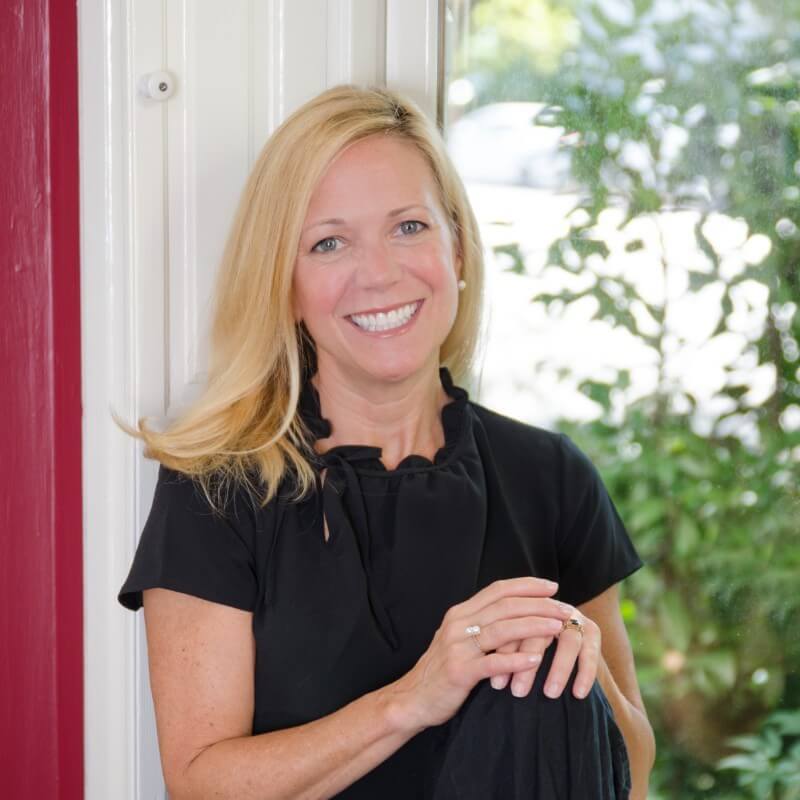-
News & Trends -
Sales -
Marketing Related Topics -
B2B Software Guides Related Topics -
Free Tools & Resources -
- About Us About Us


When you and your prospect have reached the end of your sales process, there's a correct way to go about closing the sale so that your prospect agrees to the deal and signs the contract. Luckily, there are several tactics you can use as you prepare to close the sale, officially make the ask, and follow up according to their response. We asked sales experts for their advice on how best to close deals, then compiled the top answers so you can apply their tips to your own closing process.
To learn more about deal closing beyond these tips, check out our article about how to close the sale and read about the full process and steps involved.
When preparing to ask your prospect to finalize a purchase with you, there are certain tips and tricks to help you connect with your customers and ensure you ask for the right sale at the right time. Below, learn what our sales experts have to say about how best to prep for a deal close.


Partner, Hinge Marketing
"Show that you’ve done your homework. The best way to do this is by sharing an observation along with relevant data that backs it up. This will convey that if they choose you, they’ll be in for more than the bare minimum. They are in for a relationship that will educate and help elevate their thought process."
— Elizabeth Harr, Hinge Marketing


Vice President, Motivosity
"When you’re able to create a relationship with a prospect, you’ll build mutual trust, rapport, and connection. All three of these things are key to a successful and effortless close, because you’ve laid the ground work ahead of time. Building a relationship helps the deal feel more natural and less 'salesy.' You’re providing value to the prospect while getting to know each other, so they’re primed and ready to say yes when you make your final proposal."
— Logan Mallory, Motivosity


CEO, Solar Panels Network USA
"Create a personal connection with the customer by clearly demonstrating that you understand their needs and are committed to helping them find the right solution. Once you have established trust, you can then begin to discuss your product or service in more detail. It's also important to be flexible in your approach and be willing to adjust your offer to meet the customer's specific needs. By taking the time to really understand the customer and what they are looking for, you'll be in a much better position to close the sale."
— Alan Duncan, Solar Panels Network USA


CEO & Founder, Lashkaraa
"You want your sales pitch to focus on the customer. Build your pitch around the needs, interests, and goals you found out about during lead nurturing and explain how you can accommodate them. Put the individual customer first rather than focusing on closing the deal. It will feel more authentic and personalized, and you are far more likely to close the deal."
— Sumeer Kaur, Lashkaraa
Once you feel prepared for the close, there are important tips and tricks for actually solidifying the deal and coming out with a closed/won sale. Read on to learn the different tricks our sales experts use when they close their own sales.


CEO & Co-founder, Instrumentl
"Know when to close the sale. It sounds simple, but it's absolutely true. For example, if you're working with someone who has been trying out your product for several weeks, they might be ready to make their purchase decision during that last meeting — but if they're still in the discovery phase and haven't even tried your product yet, you should probably wait until they have before making any commitments on either side. Knowing when to close the sale allows both parties to move forward together rather than leaving one party behind (and possibly regretting it later)."
— Gauri Manglik, Instrumentl


Founder & Managing Partner, Funnel Clarity
"The customer is the one that ultimately qualifies themselves and closes any sale. The clarity with which a decision maker can articulate what they are looking to fix, accomplish, or avoid often has a significant impact on how quickly they'll make a buying decision. If they're able to clearly state what they need by the end of your sales process, it's likely a safe choice to go ahead and ask them to buy the solution that you believe will help them."
— Tom Snyder, Funnel Clarity


Certified Public Accountant, Step By Step Business
"When closing a sale, try the assumptive close, which involves using terms and languages during your pitch that assume you have a signed deal. As an example, a lawn service provider could ask, 'How often would you be needing us to maintain your lawn after this project?' This statement signifies that the salesperson has the assumption of a done deal and intends to further the client relationship through initial service plus maintenance."
— Mark Stewart, Step By Step Business


Sales Manager, seoplus+
"Align your close with the specific timeline of the customer and the potential pitfall of missing that date of theirs. Work backwards on their timeline and the length of the process for your organization to meet their timeline with confidence and comfortability for the client. For example, 'If we don’t get an agreement by this date, then your starting timeline is in jeopardy. If we miss that date, what would that mean to the success of your organization's plans?' "
— Craig Heward, seoplus+


CEO, WebSpero Solutions
"The scarcity sales close, often referred to as the now-or-never close, uses a good ol' FOMO (fear of missing out) to persuade a prospect to buy. You entice the prospect with a discount or an additional perk, but only if they take on-the-spot action and make a purchase. This mostly works when the potential customer is honest about wanting to buy but only needs a little prodding."
— Rahul Vij, WebSpero Solutions


Director, DanielFoley
"Offer a unique perk (discount, gift, bonus, attractive quote, etc.) to your consumers who are still hesitating in order to convince them to purchase. This strategy is effective because individuals are frequently hesitant to commit, even if they desire what you give them. Therefore, simplify the decision-making process for them (to your advantage). For example: 'If you join up now, I can provide a 25% discount.' "
— Daniel Foley Carter, DanielFoley
Your job isn't quite done after closing the sale. From here, it's crucial to express your gratitude, make the transition easy for your new customer, and keep the lines of communication open. Here are some key tips from sales pros who have experience with following through on a sale:


Founder, IceSword US
"After making a sale, always say thank you. This is the most important unwritten rule of sales. It can be in the form of an appreciation email, a thank-you card attached to the invoice, or just voiced gratitude. This opens a channel for a long-lasting relationship that will lead to more sales and gives the customer the feeling that they've solved their problem and given something of value to another person. When you make a sale, follow up with the customer, as existing customers are more likely to bring further revenue to your business."
— Charmaine Chan, IceSword US


Founder & CEO, BankingGeek
"Following up with customers is one of the best ways to close sales. By keeping in touch with customers after they have made a purchase, you can build relationships and trust, which can lead to repeat business and referrals. There are a few different ways to follow up with customers, such as through phone calls, emails, or even personal visits. The key is to find a method that works best for you and your customers. Some businesses may prefer to send a quick email after each purchase, while others may want to make regular phone calls to touch base. The important thing is to keep the lines of communication open so that customers know they can always reach out if they need help or have questions."
— Max Benz, BankingGeek
When it comes to closing a sale, it's important to properly nurture your leads and ask them for the deal to make them want to do business with you. Also key are the actions you take after closing the sale to stay organized and continue building a relationship with your new customer. Make sure to use the tips from our sales experts to increase your close rate and get your prospects all the way through your sales process.


Sam is a former SaaS sales rep turned freelance writer. He spent his career selling real estate technology to C-suite executives before switching over to blogging, where he now covers sales, marketing, and small business topics. Sam specializes in lead generation, lead nurturing, and deal closing articles for Selling Signals. When he’s not researching the latest sales trends, he’s either penning short stories, hiking, or reading in NYC’s Washington Square Park.

Selling Signals delivers actionable advice for sales and marketing professionals. Learn strategies that help you hit targets, strengthen customer relationships, and win more business. Get expert advice on lead generation, sales processes, CRM software, sales management, and account management directly to your inbox.
Property of TechnologyAdvice. © 2026 TechnologyAdvice. All Rights Reserved
Advertiser Disclosure: Some of the products that appear on this site are from companies from which TechnologyAdvice receives compensation. This compensation may impact how and where products appear on this site including, for example, the order in which they appear. TechnologyAdvice does not include all companies or all types of products available in the marketplace.